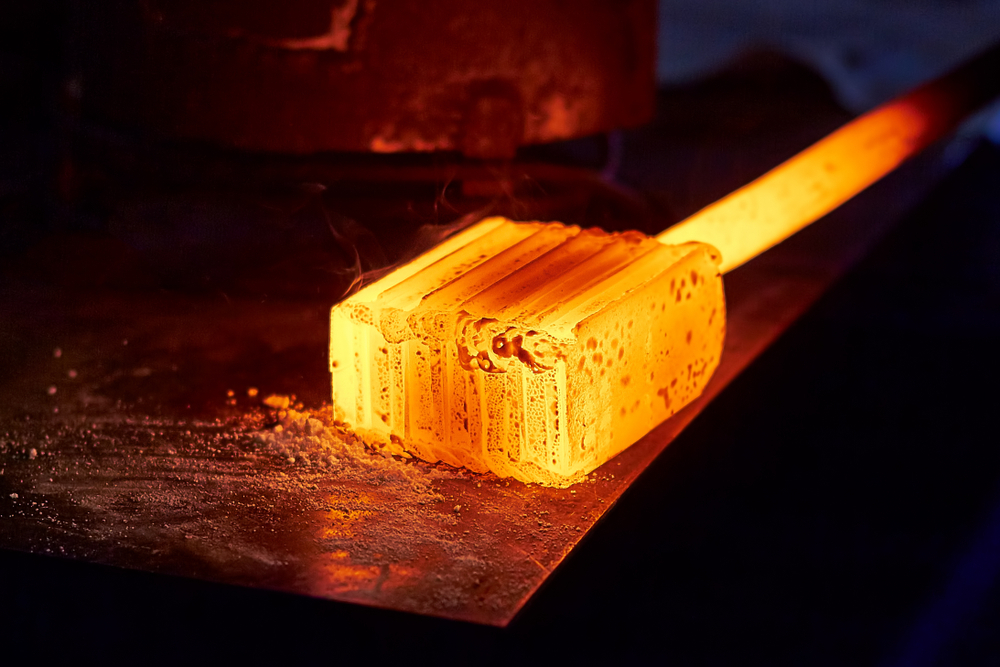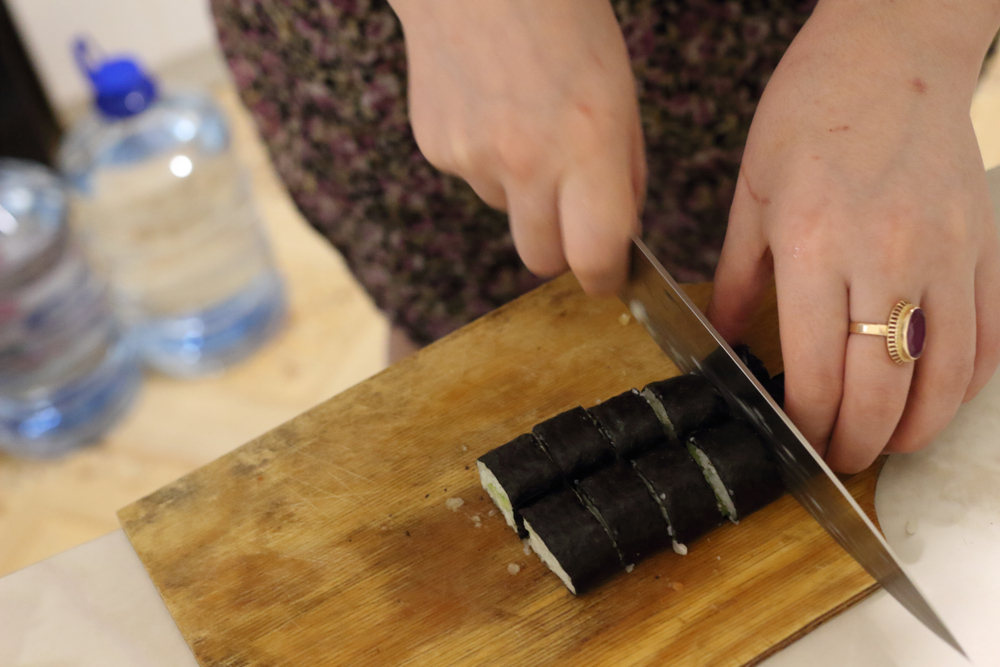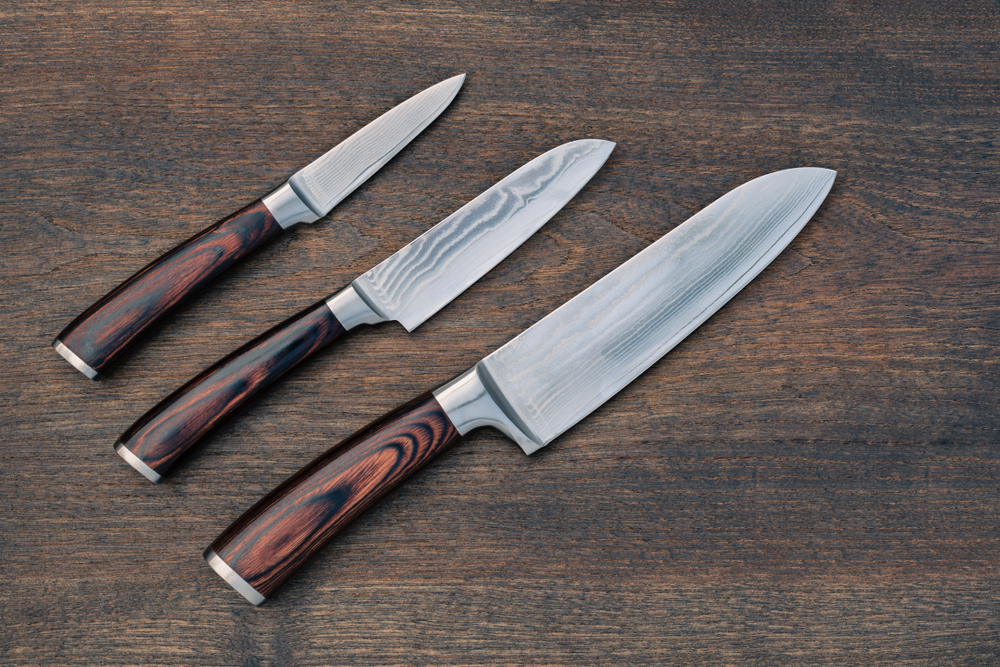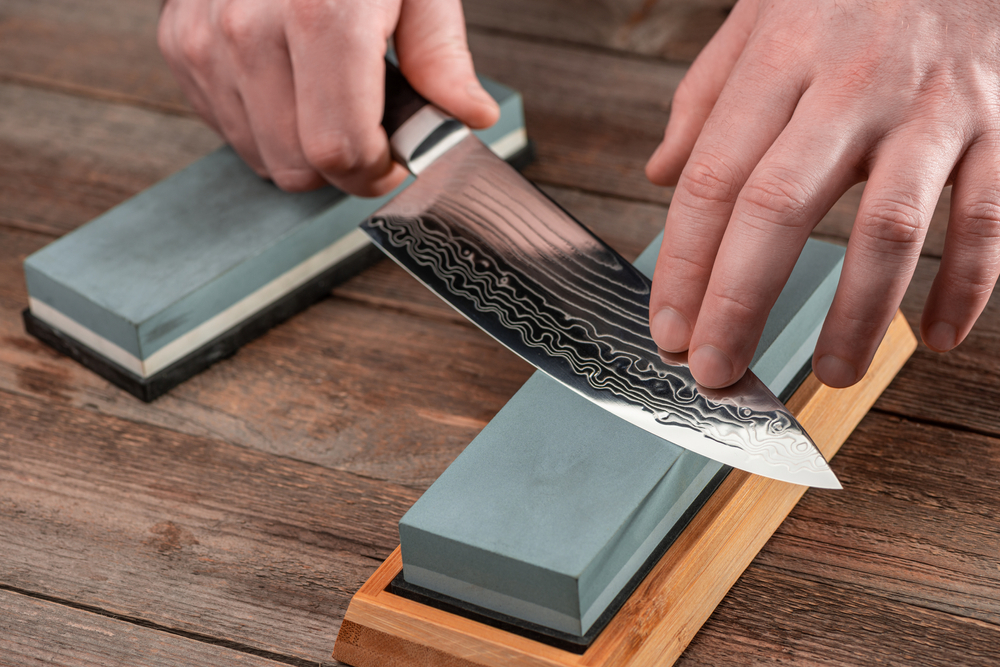Damascus steel and stainless steel are two types of steel that are commonly used in a variety of applications. But what is the difference between Damascus steel and stainless steel? What are their compositions? And what are some of the unique features of each type of steel? In this article, we’ll answer all your concerns and more!
Damascus steel can be described as a kind of steel traditionally used to make knives and swords. It is characterized by its distinctive wavy or rippled pattern, which is created by folding and forge-welding layers of iron and steel. Damascus steel was also known for being extremely tough and resistant to breakage.
Stainless steel On the other hand is a form of steel that has a minimum of 11 percent of chromium. This is what makes it stronger against corrosion than Damascus steel. The stainless steel is non-magnetic. That means it is not attracted to magnetic objects. Additionally, stainless steel is less likely to discolor or stain than Damascus steel.
Key Differences
So, what are the key differences between Damascus steel and stainless steel? A major difference between Damascus and stainless steel is characterized by its wavy or rippled pattern, while stainless steel is non-magnetic and less likely to discolor or stain. Damascus steel is also more resistant to breakage than stainless steel. So, if you’re looking for tough and durable steel, Damascus steel is a good option. Stainless steel is a better option if you’re looking for steel that is less likely to discolor or stain.
What materials is Damascus Steel made of?

Damascus steel is made of iron and steel. The exact composition varies depending on the specific Damascus steel, but typically, it contains about 0.60-0.90% carbon. Damascus steel also has other metals like molybdenum, cobalt, nickel, and vanadium.
What is the difference in hardness between Damascus steel and stainless steel?

Damascus steel is in fact harder than stainless steel. This is due to the high carbon content in Damascus steel, which makes it harder and more resistant to breakage. Stainless steel, on the other hand, contains chromium, which makes it more resistant to corrosion but less resistant to breakage.
Damascus steel is an ideal choice for applications that require tough and durable steel. Stainless steel is a better choice for applications that require steel that is less likely to discolor or stain.
What is the difference in durability between Damascus steel and stainless steel?
Damascus steel is more durable than stainless steel. This is because Damascus steel contains carbon, which makes it harder and more resistant to breakage. Stainless steel, on the other hand, contains chromium, which makes it more resistant to corrosion but less resistant to breakage.
Damascus Steel vs Stainless Steel A Difference in resistance to corrosion
Damascus steel has a lower susceptibility to corrosion than stainless. The stainless steel has chromium which helps it resist corrosion. Damascus steel doesn’t contain chromium, which makes it more vulnerable to corrosion and rust.
How do Damascus Steel And Stainless Steel Differ By Appearance?
Damascus steel has Damascus patterns while stainless steel is just a shiny surface. Damascus designs are created due to impurities that are present in the wootz steel blocks where the Damascus steel melted. Layering the blades repeatedly during forging produced the Damascus blade pattern. Modern metallurgists use different materials to reproduce the signature Damascus patterns.
Damascus Knives vs Stainless steel knives: Which is the Better Option?

Damascus steel knives are better than stainless steel knives in terms of durability and resistance to breakage. Damascus steel contains carbon, which makes it harder and more resistant to breakage. Stainless steel, on the other hand, contains chromium, which makes it more resistant to corrosion but less resistant to breakage. Stainless steel knives are also less likely to discolor or stain than Damascus knives.
Read More: https://kitchenvillas.com/damascus-steel-knives/
Why is Damascus Steel called Damascus?
The Damascus steel blades were created in the city of Damascus, Syria. The steel received its name because of the town the first place it was forged. Damascus blades are known for their distinctive patterns, which are formed by the layering of different types of metal during the forging process.
How Damascus Steel Is Made?
The process of making Damascus steel begins with a block of iron and steel. The iron and steel are heated to a high temperature and then hammered into thin sheets. These sheets are then forged-welded together to create a Damascus billet. The billet is then reheated and forged into shape. Once the desired shape is achieved, the Damascus steel is cooled in oil or water to harden it.
How Stainless Steel Is Made?
Stainless steel is produced by mixing iron with other elements, like nickel and chromium, in an unchangeable or fixed proportion. This creates a corrosion-resistant material that is durable and easy to maintain.
Conclusion | Damascus Steel VS Stainless Steel
So, Damascus steel is harder and more resistant to breakage than stainless steel. Stainless steel is more resistant to corrosion but less resistant to breakage. Damascus steel is less resistant to corrosion than stainless steel.
Damascus knives are a better option for applications that require a tough and durable knife while stainless steel knives are a better option for applications where the knife is less likely to discolor or stain.
I hope you find this article informative. For any concerns, post a question in the comments below. Thank you for taking the time to read!

